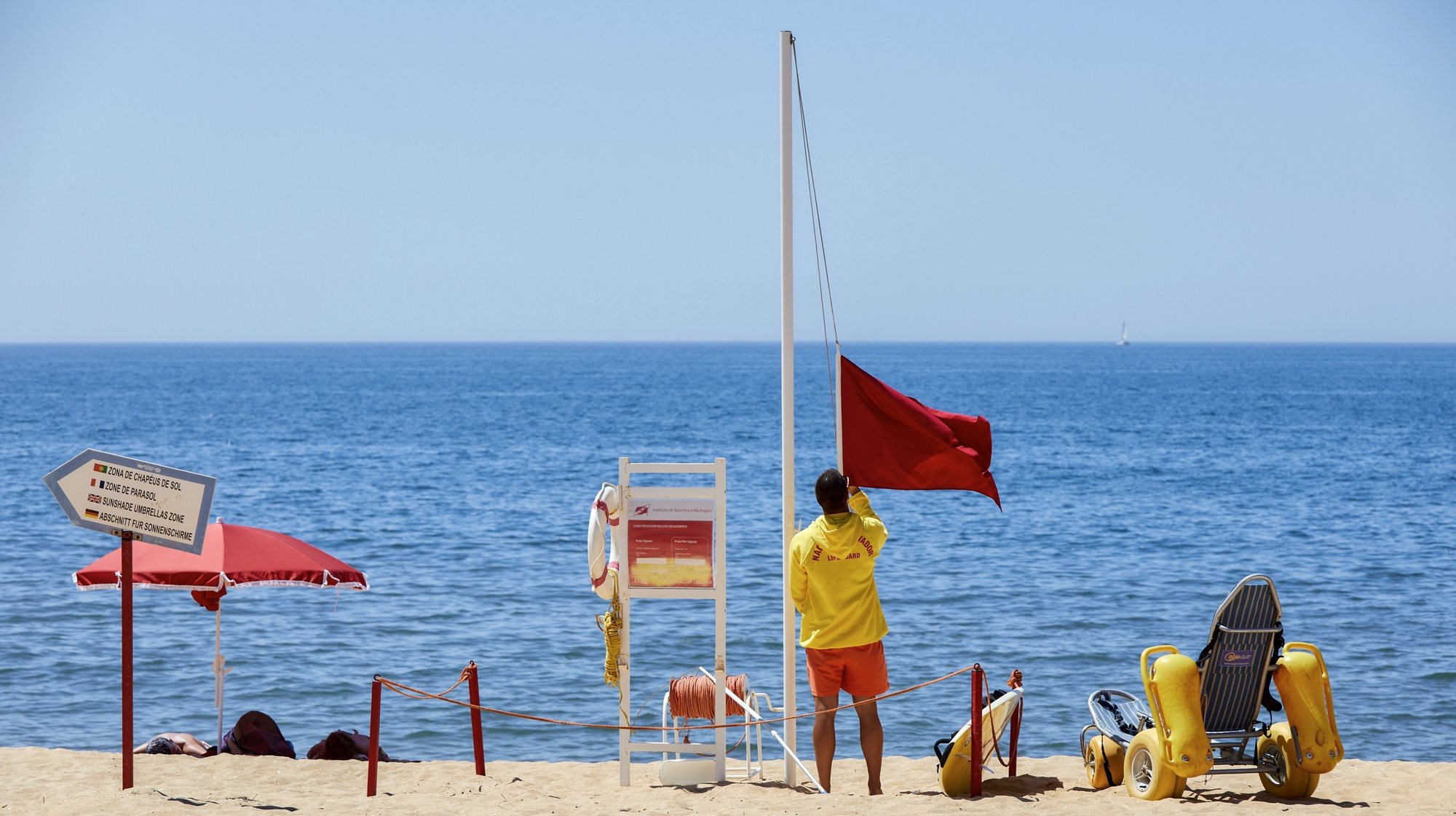
The president of the Portuguese Federation of Lifeguards (FEPONS) defended this Monday that the swimming season “cannot be limited only to summer” and advocated increasing education on water safety.
Alexandre Tadeia thus reacted to the various drowning situations recorded this weekend on Portuguese beaches, which led the National Maritime Authority to carry out 249 rescues in the last three days, finding Three people missing in a bathroom context.
“The first measure that must be taken is that the swimming season cannot be limited only to summer, it has to be much more dynamic, just like the fire season. It has to be all year round because we use the beaches all year round,” said the person in charge in statements to Lusa.
Alexandre Tadeia realized a long time ago that, “with climate change, there would be periods of unusual heat” and recalled that, in 2020, through a study, FEPONS managed to “correlate the increased temperature with death by drowning“.
“This means that when the temperature rises, deaths on the road also increase. “Now, when we saw the heat wave predictions, it is obvious that we viewed them with skepticism, because obviously the beaches are not monitored and that is perhaps the first measure that should be taken,” he stated.
Alexandre Tadeia stressed that this is not surveillance like the one carried out during the summer, but rather a different device, giving the example of what already happens on some beaches with vehicles that carry out this surveillance throughout the year, such as in Nazaré . , Póvoa de Varzim and Fonte da Telha.
“These are good examples of what is being done at the national level and this is the first important measure: fully expand [a vigilância]”, he is stressed.
According to the president of FEPONS, it is also necessary to “hold the local authorities responsible for assisting bathers, because at the moment they continue to pressure the concessionaires to [de praia] a responsibility that has been yours since 2018.”
“If it is not the local authorities, it is obviously not possible to implement this system throughout the year, nor is it possible to have equipment that, in fact, protects the first responder and with which we can carry out prevention,” he highlighted. List of equipment such as jet skis, towers. [de vigilância] and quadricycles.
In addition to this equipment, which “is essential” for surveillance, the person in charge also highlighted the importance of increasing “education on water safety in Portuguese schools.”
“Without a doubt, although we have the beaches monitored throughout the year, all the Portuguese beaches, there must be a question of culture, of education, which currently does not exist. We only have two pages of the third grade manual, which cover water safety and this is very poor, considering the 12 years of schooling,” he acknowledged.
Alexandra Tadeia considered that “the Portuguese do not know the dangers of beaches and rivers” and those who do know them “do not value them.” “So, all of this, in fact, makes us have this moment, and whenever there is a heat spike outside of what we call bathing season, we always have this horrible issue,” she identified.
The bathing season of each year is defined in an ordinance, published in the Diário da República, which identifies the bathing waters and the definition of the respective season, considering that, at the national level, It runs from May 1 to October 30.
Between these dates, municipal councils determine when it begins and ends in their territory, some begin earlier and end later.
According to its manager, in the first half of April, FEPONS has already recorded 17 deaths in the aquatic environment, “17 deaths is more than one death per day on average, not only on sea beaches, but also inland.”
“This leads us here to consider, in fact, that the policies that are being followed are not the best. It has to change. A lot has already been done in the past, but we have to change,” she noted, acknowledging the current “sad scenario.”
Alexandre Tadeia also argued that it would be better to opt for a proactive measure such as prevention and not reactive measures, as is currently the case. “We spend many thousands of euros on body search operations. That is, in a reactive measure, when that money could obviously be spent on prevention and would be enough to monitor these spaces. Therefore, this vision clearly needs to change for the water security of the Portuguese,” he replied.
Maritime authorities are today involved in several searches by water and/or land for disappearances during the weekend in maritime and river waters: on Costa Nova beach, in Ílhavo, in the district of Aveiro; on Vieira beach, in Marinha Grande, Leiria district; on the Tagus River, in Lisbon; and on Salgueiros beach, in Vila Nova de Gaia, Porto district.
Source: Observadora